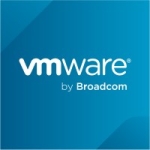What is our primary use case?
We support their warehouse and we are looking into the network data warehouse product, which is tightly integrated. This is pretty much the go-to product for that process due to the fact that it's all in one box, and is pre-packaged. It's all Oracle servers, and Oracle hardware, and Oracle software and it's all in one.
How has it helped my organization?
We used to have different vendors and servers. Everything was all over the place. Now that we are on Oracle, everything is centralized, removing a lot of complexity.
What is most valuable?
The deployment is super-simple as everything is pre-packaged. There's very little configuration to worry about.
We manage everything through the appliance. It's easier to manage from our side of the managed databases and add more storage, et cetera. It's very easy to mimic what we need. we can easily add more storage whenever we want. The scalability is great.
We had Commodity servers - those bales servers on-premises - and there was a lot of maintenance going on with that. After moving to RDA, life is much easier because everything is managed through those deployed solutions. It's easier to manage this way.
From a maintenance point of view and from an upgrade and migration point of view, it is very easy because most of the upgrades are fast. We can take one down and finish the upgrade and move onto the next as necessary. It's easier to manage the patches and upgrades.
The solution is pretty automated, which takes out the possibility of human error.
The pricing is great. It's much better than what the competition is offering.
The product is pretty user-friendly.
What needs improvement?
There aren't really any features that the solution is lacking.
The product is quite complex to set up, initially. It would be ideal if it was simpler.
Any limitations within the solution are case by case. The solution may work for some, but it isn't for everyone.
The product is still evolving. It could still, for example, be more user-friendly. It's not quite perfect yet.
Buyer's Guide
Oracle Database Appliance
January 2026
Learn what your peers think about Oracle Database Appliance. Get advice and tips from experienced pros sharing their opinions. Updated: January 2026.
881,733 professionals have used our research since 2012.
For how long have I used the solution?
I've been using this solution since last year.
What do I think about the stability of the solution?
The solution is pretty stable. I don't recall bugs or glitches. It doesn't crash. I find it pretty reliable overall.
What do I think about the scalability of the solution?
The solution can easily scale. We've found that if we need to add more storage, it's very straightforward to do so. If a company needs to scale, it's not a problem with Oracle.
In our case, because we are on-premises, there are some limitations due to the fact that we only have two servers. We understand our limitations and we know it will work well for us over the next five years or so. And then, if we need to expand, we can plan for that.
We have about 500 active users within our company on the solution. We have reporting applications and a lot of data manipulations, and all that going on, on this database. It's mostly IT personnel on it currently.
How are customer service and support?
We've worked with Oracle a lot, compared to other previous solutions. The company sells it with support and clients get account managers that they can reach out to. Overall, technical support has been good. I'd rate it a nine out of ten. They are very knowledgeable and responsive. They are very good. We've been satisfied with the service provided.
Which solution did I use previously and why did I switch?
We used to have similar databases on different servers, and we had to work through different vendors. We had different storage, then different servers, then different vendors and the backup solution was on another vendor as well. There was a lot of coordination required. It added a lot of complexity to everything. With this kind of a solution, everything is on one kind of a black box. We don't have to worry too much and the level of coordination required has dissipated.
How was the initial setup?
The initial setup is not straightforward. It's quite complex. Once you get the hang of it and get it going, it's easier for others on our application team. It's also easier to manage int he long run. The main problem is that it's quite different from what we used to do, so there's a bit of a learning curve during the setup.
What's my experience with pricing, setup cost, and licensing?
The pricing is really good for us. We have no complaints there. It's not as expensive as other products on the market. The excellent price point is one of the reasons we moved to RDA.
What other advice do I have?
We're just a customer. We don't have a business relationship with Oracle.
Due to the current contractual agreements, et cetera, within our organization, we are not doing or considering anything on the cloud - from the database side at least.
I'd rate the solution eight out of ten. There are still some limitations. That said, it did simplify a lot of things for us, compared to our old setup.
Which deployment model are you using for this solution?
On-premises
Disclosure: My company does not have a business relationship with this vendor other than being a customer.
















How many Oracle Database License required by ODA?